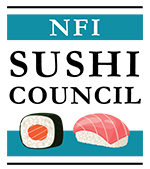What Will The AP Report If The Sky Really Does Fall?
Today the Associated Press (AP) is reporting on a new study that claims “failed policies” have lead to “corruption” and “overfishing” the world over. For a venerable news agency it is an article that is packed with a surprising amount of hyperbole and maddeningly little research.
The AP story, like the study itself, simply ignores much of the conservation and oversight that is underway and paints with an embarrassingly broad brush, using statistics that are convenient to an apparently forgone conclusion while ignoring ones that contradict. Likewise, it plays a rhetorical game with readers by failing to define certain terms in order to exaggerate the conclusion of the study.
The first sentence states that “government polices have failed to combat overfishing in the world’s oceans.” Certainly some government policies have failed in this effort but all, everywhere? “The study found none of the countries managed their fisheries sustainability.” This line alone doesn’t pass the laugh test. It’s a blanket statement that the AP failed to research or challenge in any way shape or form-journalistic negligence.
A cursory glance at the 2008 National Oceanic and Atmospheric Administration’s (NOAA) Status of the stocks report would have shown on just the introductory page that “it is important to note that the majority of our domestic assessed fish stocks are either not subject to overfishing (84%) or not overfished (77%).” That’s a snap shot of management of U.S. “fisheries sustainability” in less that 28 words-the NOOA report itself is 28 pages. Failure to do this kind of basic research by the AP allows this study to present a skewed picture of fisheries management completely unchallenged.
The article then goes on to quote critics who suggest “we see fisheries declining due to poor regulation of fishing efforts in many developed countries including the European Union, the United States and Canada.” Are there certain stocks with certain issues and certain regulations that have been unsuccessful? Of course there are. But to suggest that for instance in U.S. and Canadian fisheries are broadly in decline is a simple distortion allowed voice by the AP. Again from NOAA, “Much progress has been made over the past several years in increasing the sustainability of our stocks. This progress is indicated by the Fish Stock Sustainability Index (FSSI).” “Progress” or “decline” – you be the judge. But wait, you can’t be the judge because the AP does not tell you about the “progress” only the apparent “decline.”
The AP also plays a word game with its readers that plays nicely into the overstatements found throughout. Describing “fisheries stocks,” the article notes that the study claims, “52 percent are fully exploited.” The AP never defines the term “fully exploited” and ignores the definition contained in the very report from whence the statistics they cite presumably came from. The United Nation’s Food and Agriculture Organization’s Status of the World’s Fisheries and Aquaculture Report explains the 52 percent number and then notes on pages 34-35 that “It should be noted that the status of fully exploited is not undesirable provided it is the result of an effective and precautionary management approach.” An explanation not conveyed by the AP article.
Later on the AP writes that “the tuna industry offers a textbook example of how often the economic interests of the industry trumps the recommendations of marine scientists when it comes to catch limits.” But while excoriating the tuna industry there is no mention of the international organization set up by a partnership of tuna canners and the WWF, the International Seafood Sustainability Foundation (ISSF,) to address this very issue. There is no mention of ISSF’s “global partnership dedicated to using science to ensure the long-term conservation and sustainable use of tuna.” Instead it is held out as a “textbook example” of sustainability problems. And which fish dose the AP choose as the poster child of these economic interests run amuck?
The bluefin.
Of course, the tried and true fish stock that everyone knows is in terrible shape because of mismanagement and greed. A stock that the board brush of the AP’s reporting doesn’t mention makes up about 1 percent of the tuna caught world wide. That’s the same broad brush that fails to mention that 88 percent of tuna stocks world wide are not overfished.
In this story the AP takes an important issue and rather than using objectivity and balance to shepherd its writing it uses Henny-penny’s editorial guide.


